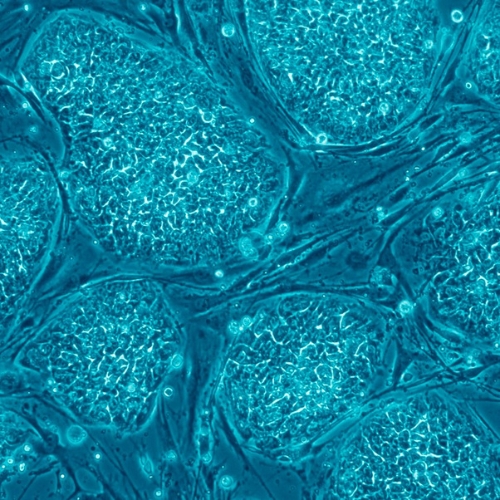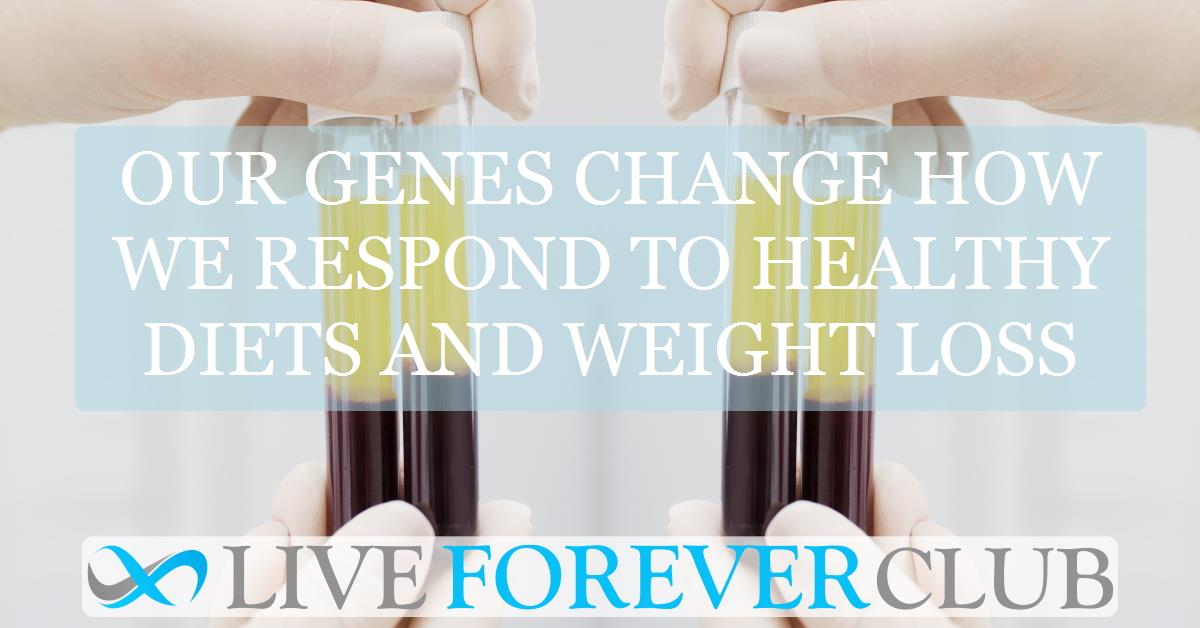Genes and nutrition together determine how our bodies process energy, regulate glucose, and store fat. The study from the PREDIMED-Plus trial explores how genetic variations interact with diet to influence obesity and type 2 diabetes (T2D) risk. It moves beyond population-level nutrition advice, introducing the concept of gene–diet interaction as a driver of metabolic health.
The researchers examined whether certain gene variants affect how people respond to a Mediterranean dietary pattern. This diet, known for its balance of unsaturated fats, plant-based foods, and low red meat intake, has strong evidence for improving cardiovascular and metabolic outcomes. The study combined nutritional and genetic data to test whether personalized diet plans can prevent or delay diabetes in individuals predisposed to obesity.
Aim and Hypothesis
The study aimed to determine whether specific single-nucleotide polymorphisms (SNPs) modify the effect of an energy-restricted Mediterranean diet on metabolic health. The central hypothesis was that diet does not work equally for everyone because genetic differences alter physiological responses.
Researchers targeted individuals at high risk for metabolic diseases. They proposed that while all participants might benefit from healthy eating, the magnitude and direction of these benefits would depend on genetic profiles related to insulin sensitivity, lipid metabolism, and inflammation.
This hypothesis aligns with growing evidence that nutrigenomics—the study of how nutrients interact with genes—can reveal why some individuals experience stronger dietary effects than others.
Study Overview
The PREDIMED-Plus trial enrolled over 6,000 older adults with overweight or obesity. Participants were randomly assigned to two groups: one followed an energy-restricted Mediterranean diet with physical activity and behavioral support, while the other consumed a traditional Mediterranean diet without calorie restriction.
Blood samples provided genetic information on selected SNPs known to influence metabolic traits. These included variants in FTO, TCF7L2, PPARG, APOA5, and LPL. Researchers tracked changes in body weight, fasting glucose, lipid levels, and inflammatory markers over time.
This design allowed direct testing of whether genotype modifies the effect of diet on obesity and diabetes outcomes. It also enabled identification of gene-specific pathways responsive to lifestyle change.
Mechanisms Behind Gene–Diet Interactions
The study highlights several mechanisms explaining how genes influence dietary response. The FTO gene, for instance, affects appetite regulation and energy expenditure. People with risk variants often experience stronger hunger cues and reduced satiety. Even under calorie restriction, they may lose weight more slowly.
The TCF7L2 gene influences insulin secretion and glucose homeostasis. Variants in this gene elevate diabetes risk by impairing beta-cell function. However, diets rich in fiber and unsaturated fats, such as the Mediterranean pattern, can counteract these effects by improving insulin sensitivity and reducing glycemic load.
Similarly, PPARG plays a vital role in adipocyte differentiation and lipid storage. The Pro12Ala polymorphism modifies the receptor’s sensitivity to fatty acids. Participants with this variant responded better to diets high in monounsaturated fats, showing improved insulin action and lipid profiles.
Variants in APOA5 and LPL, both central to triglyceride metabolism, showed differential responses depending on dietary fat quality. Diets emphasizing olive oil and nuts reduced triglycerides more effectively in certain genotypes, suggesting that lipid composition interacts with genetic regulation of fat transport and clearance.
Key Findings
The findings confirmed that the Mediterranean diet exerts beneficial effects across genotypes, but individual responses vary. Participants with FTO risk alleles experienced smaller reductions in body weight and waist circumference than non-carriers, even under equal conditions. This supports the idea that genetic predisposition can moderate, but not eliminate, dietary benefits.
In contrast, TCF7L2 variant carriers achieved more pronounced improvements in glucose metabolism when adhering to the Mediterranean pattern. High fiber and healthy fats likely mitigated their genetic disadvantage. Similarly, those with the PPARG Pro12Ala variant displayed enhanced insulin sensitivity and better lipid balance when following the energy-restricted version of the diet.
Genes regulating triglyceride metabolism showed strong interactions with dietary fat type. Participants with specific APOA5 and LPL variants benefited more from diets rich in unsaturated fats, showing improved plasma lipid profiles.
Together, these findings suggest that personalized dietary strategies based on genetic makeup could optimize prevention of T2D and obesity.
Implications for Nutrigenomics and Precision Nutrition
The results reinforce a shift toward precision nutrition, where dietary interventions are tailored to an individual’s genetic background. Traditional recommendations often overlook genetic heterogeneity, but this study shows that molecular diversity strongly influences metabolic outcomes.
Nutrigenomics provides a framework for integrating genetics into dietary advice. By identifying gene variants that modulate responses to macronutrients, clinicians can design diets that align with biological needs. This approach may prevent disease progression in high-risk populations and improve the effectiveness of lifestyle programs.
Furthermore, the study’s findings align with other research showing that Mediterranean dietary patterns can buffer genetic risks. High antioxidant and anti-inflammatory nutrient content may modify gene expression and epigenetic activity, enhancing metabolic resilience even in genetically susceptible individuals.
Biological Interpretation
The interplay between genes and diet reflects a broader concept of metabolic plasticity—the body’s ability to adapt to environmental inputs. Even with unfavorable genetics, positive dietary environments can shift physiological balance toward health.
The Mediterranean diet likely exerts these effects by influencing transcriptional pathways linked to lipid oxidation, mitochondrial efficiency, and inflammation. Polyphenols, omega-3 fatty acids, and monounsaturated fats act as signaling molecules that regulate gene expression. Over time, these molecular changes improve glucose uptake and reduce oxidative stress.
This means that genetics define predisposition, but diet determines expression. Individuals may carry risk alleles, yet never develop disease if lifestyle factors counteract their effects.
Limitations and Future Research
Despite robust design and long follow-up, the study had some limitations. It analyzed only selected SNPs rather than full-genome profiles, leaving many potential interactions unexplored. Also, participants were primarily older adults of Mediterranean descent, so generalization requires caution.
Future research should include multi-omics integration, combining genomics, transcriptomics, and metabolomics to uncover deeper diet–gene relationships. Machine learning models could identify complex patterns across multiple genes, moving beyond single-variant analysis.
Additionally, behavioral and psychological variables need exploration, as adherence plays a crucial role in translating genetic potential into real health outcomes.
Broader Public Health Perspective
The study’s implications extend beyond personalized medicine. Promoting Mediterranean dietary principles remains beneficial for entire populations. Encouraging plant-based eating, olive oil use, and reduced refined sugar intake can improve metabolic health even without genetic screening.
However, incorporating genetic information into preventive programs could enhance efficiency. Health systems could stratify individuals by genetic risk and provide tailored interventions. For example, those with FTO risk alleles might receive targeted behavioral counseling to strengthen adherence and manage appetite.
This model bridges population-wide nutrition with individualized medicine, ensuring inclusivity while optimizing outcomes.
Conclusion
The PREDIMED-Plus trial offers compelling evidence that genetic factors influence how individuals respond to dietary interventions. While genes shape predisposition, diet and lifestyle determine realization. The Mediterranean diet, particularly in energy-restricted form, improves glucose metabolism, lipid balance, and inflammation across diverse genetic profiles.
The study underscores that genes are not destiny. Through nutrigenomic insights, healthcare can transition from reactive disease management to proactive prevention. Personalized nutrition grounded in molecular science could redefine chronic disease prevention, allowing everyone to eat in harmony with their biology.
Alexey Strygin remarked he usually criticizes Calico for incrementalism despite large resources, but finds these results “impressive.” He noted frustration over not getting even a “no reply” to his prior application. He also referenced the recent preprint by Oliver Hahn’s team (Calico) on hematopoietic stem cell transplants aging with their environment, and how STAT1 deletion could “protect” donor cells from environmental aging signals.
Alexey Strygin is a longevity-focused biotech entrepreneur. He works in drug discovery, digital health, and aging biology. He serves as Chief Digital Health Officer at Gero.ai and leads Gerosense.ai, a project for biological-age tracking.
The study is published in the journal BioRxiv (Cold Spring Harbor Laboratory).






